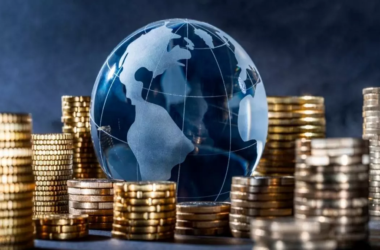As of 2021, the United Kingdom had a population of 67 million people and a GDP of $3.2 trillion. It is the fifth-largest economy in the world and a prominent international trading power. Even though the U.K. is geographically small, it is known to have the second-largest economy in Europe and led the G7 in GDP growth in 2021. A popular business expert, Kavan Choksi mentions that the quality of life in the U.K. is generally considered to be high, and its economy is pretty diversified. Construction, manufacturing, tourism, and services are some of the sectors that contribute most to the U.K.’s GDP.
Kavan Choksioffers general insight into the economy of the United Kingdom
As per the U.K. Office for National Statistics (ONS), the services sector of the country is essentially its largest one, and accounts for more than three-quarters of the GDP. The service industry in the nation comprises of many types of industries, ranging from finance and business services to consumer-focused domains like entertainment and retail. Agriculture contributes to just around 0.60% of U.K.’s GDP, and manufacturing and production contribute less than 21%.
Growth in the services industry of the United Kingdom increased by 2.1% in 2018, which was an improvement from the growth seen in the previous two years. However, the overall slowdown in the real household consumption in the country that started in 2017, continued in 2018. This reduction was partly driven by a declining housing market and uncertainty over Brexit.
The U.K.’s June 2016 decision to leave the European Union (E.U.), also known as “Brexit”, formally took effect on January 31, 2020. Many nongovernmental organizations and government agencies have projected that the uncertainties around ongoing Brexit negotiations would have major negative implications for the economy of the United Kingdom. This is further complicated by the fact that economic events since the formal separation have been dominated by the impact of -19 related lockdowns, as well as Ukraine-Russia conflicts.
As per Kavan Choksi, however, while the U.K.’s economy might be relatively turbulent at the moment; it has historically been one of the strongest economies on the planet. It has a pretty diversified economy and is not reliant on any one sector, which is a huge advantage. For instance, while manufacturing might be in decline in many parts of the planet, it still does represent a good percentage of the United Kingdom’s economy. This nation also has strong financial and professional services sectors, which employ nearly 4 million people.
The United Kingdom has a long history of economic stability, which has helped the country to weather many challenges. For instance, when many other European nations were experiencing negative growth during the financial crisis of 2008, the economy of the United Kingdom continued to grow. There were many factors that were responsible for driving the growth of this nation, including its flexible labor market, as well as embracing of austerity measures. These factors may even put United Kingdom’s economy in a better position when it comes to facing Brexit related uncertainties.






